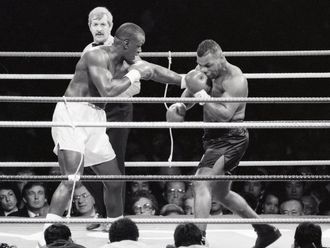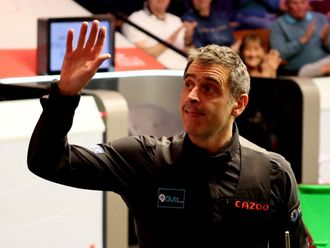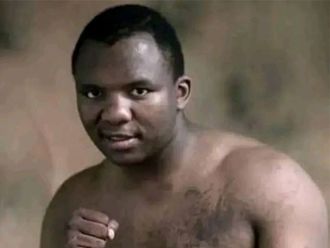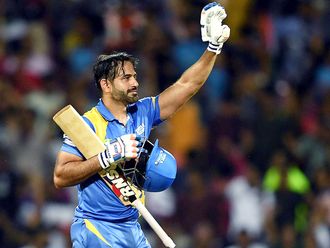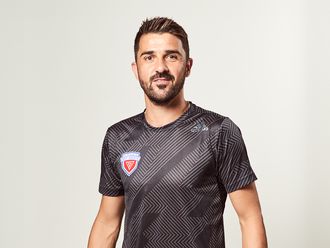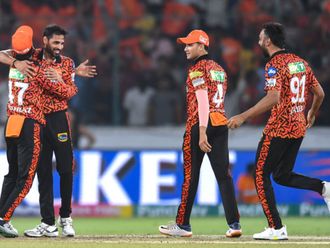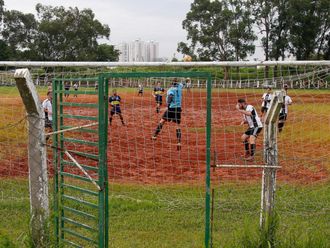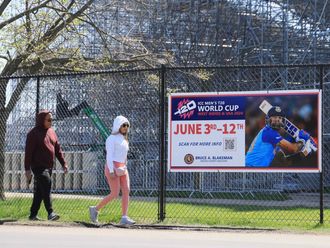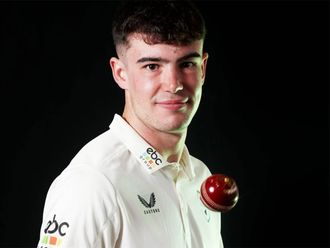London: There were three of them that unforgettable night. The trio of British athletes needed only 46 minutes in the Olympic Stadium to produce an emotive string of gold medal-winning achievements that will be linked forever in the collective memory of London 2012 as Super Saturday.
Jessica Ennis withstood prolonged public expectation to seal victory in the heptathlon while Mo Farah’s searing run won him the 10,000m. They have both enjoyed sustained exposure over the past year with their post-Olympic sponsorship worth, respectively, a reported £2.5 million and £3 million.
Life has been different for Greg Rutherford. His gold medal in the long jump provided a surprising filler between the showcase celebrations for Team GB’s amiable but glittering stars. Yet even his status as an Olympic champion has not helped Rutherford retain his sponsor or earned him any other lasting opportunities. In the wake of his apparently life-changing success, he was dropped by Nike and stalked again by the misfortune that undermined him before London.
Catalogue of injuries
“Over the years, I’ve had torrid luck with things going wrong,” Rutherford says with a rueful smile. “And then here comes London 2012 and everything goes right. If I sit back and think about it, or watch any of the footage, I still get emotional. As it stands, it defines my life. It’s the crowning glory and everyone associates me with it. But my bad luck has been ridiculous at times.”
Before Rutherford documents his catalogue of injuries, which have already removed him from this weekend’s Anniversary Games at the Olympic Stadium, which started yesterday, and now threaten his participation at next month’s world championships in Moscow, he reflects philosophically on losing his sponsor. British Athletics may have won themselves a new supporter in Sainsbury’s, who backed GB’s Paralympic team at 2012, but the Olympic long-jump champion has been reduced to scrabbling around for the semblance of a shoe deal.
“It’s an interesting one,” Rutherford says of Nike’s decision not to renew his contract. “I think the issue was that we had 29 gold medallists at London 2012 alone, without the Paralympics, and we’re in an economic slump.”
Huge gamble
Rutherford nods intently at a counter suggestion that the men’s long jump is one of the Olympics’ blue-riband events: “You would think so.” So it seems curious that a genial and eloquent champion should have been made to feel redundant.
Rutherford is about to launch his own clothing brand, GRavity, which features an apple in its logo. “I thought I’d be clever and refer to Newton,” he says with the grin of a man proud to call himself the Ginger Wizard. “As a jumper I try to defy gravity as long as I can. But no matter how far I jump I’ll always hit the earth eventually. Ultimately the clothing company is a large investment on my part and I’m taking a huge gamble. But having a focus away from the track is good for you.”
Ennis and Farah are no longer tested by everyday matters and the contrast between their fortunes and Rutherford’s is glaring. Yet Rutherford speaks sensibly when considering his fellow champions. “There’s never any bitterness or annoyance towards those two because they achieved incredible things. They had both done so much before the Olympics that they were in the limelight already.”
In the meantime Rutherford delights in remembering that extraordinary Saturday last year. “It was one of those fairytales where everything came together when I needed it most.”
Rutherford had won silver medals at the 2006 European Championships and the 2010 Commonwealth Games. But his apparent luck in winning London 2012 with a leap of 8.31m is tied to the fact that the last Olympic final won by a shorter jump occurred 40 years ago. His first and last attempts did not count in London.
“As soon as I started moving down the runway for my first jump the crowd got louder and louder in anticipation of the take-off. They were in a frenzy because of Jess. I remember thinking: ‘Wow, that’s loud!’ and before I knew it I was at the board and I ran through. I had to draw on my experience and refocus. The second round I jumped 8.21 and was in the gold medal position. I then had three decent jumps and on the last one I’d already been announced as Olympic champion. I probably shouldn’t even have attempted that one because I was on the verge of tears. I was looking for my parents and then I heard dad’s voice.”
Rutherford’s emotions are justified, especially when set against the ravaging injuries that almost ruined his career. “I’ve had 30 hamstring tears.”
Despite his occasional hobbling and financial wobbles, he believes he can perform at this level for many more years. “It’s no longer a case of proving everyone wrong after they all used to write me off. It’s still not easy but I want to prove that my Olympic win wasn’t a one-off.”
— Guardian News & Media Ltd.


